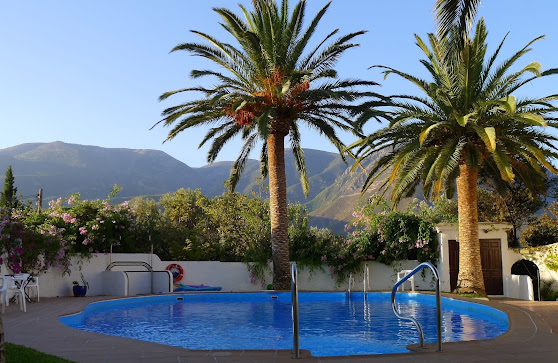The wonders of sea swimming during lockdown! And how to get the health benefit without freezing!
I am having two different conversations while out on my walks by the sea with locals. The first involves the pandemic situation here in my little seaside town. Up until recently, it has felt like a safe haven with relatively low case numbers. But things change quickly in a pandemic and at the weekend more than one neighbour cheerfully commented that "we have gone purple" now. Fortunately I have stared at the colourful coronavirus map of the UK enough times to know that purple means a lot of cases. As I wonder how on earth that happened so quickly, it is also a stark reminder that there is actually a pandemic still rumbling away which is now more prevalent here.
Fortunately the second conversation is about swimming and how I am managing to swim in the sea without freezing. And that is a very good question that I am exploring. The most commonly asked question is "what do you wear?" There seems to be a divide in the world of open-water swimming about whether to wear a wetsuit or not. Those going in with just bathing costumes at this time of year might be seen as "proper" cold water swimmers. Along the beach in my town, there is a definite mix of those wearing wetsuits and many not. The joy of being without a wetsuit is feeling the water on your skin, even if it is cold. It feels more elemental and natural. But without experience of open-water swimming, few of us beginners could manage without some neoprene to help.The first time I ever saw a "real" cold-water swimmer was on a wonderful yoga retreat at New Year in Seaford on the south coast of the UK, where one of the participants, Alice, happily went for a swim in her bikini on New Year's day. What astounded me was that she didn't get hypothermia and easily warmed up afterwards without a hot shower or rescue team. It didn't make me want to do the same, yet I was intrigued that the human body can cope with more cold than I would have thought possible. Alice is a very experienced open-water swimmer and shows that with regular immersion in the cold, our physiology can change to make it tolerable. And she also practises some simple safety rules such as getting dressed quickly afterwards with lots of layers and not having a hot bath straight away (this can drop your core body temperature down further).
It all comes back to why do this? My honest answer is that it keeps me feeling alive and being slightly stretched out of my comfort zone while much of my life is restricted. It is something different to think about other than a pandemic that is just so TIRESOME now. I love being out in nature in the water swimming in the warmer months, it is such a relaxing and grounding experience. So now I get those few minutes of connection to water and myself even in the autumn. And most importantly, I'm hoping that it will help with any moments of winter "blues". I struggle with the dark (and cold) and would normally be escaping off to sunny Spain for some respite and sunshine. Another local swimmer swears that her daily sea dips have helped her stave off her winter SAD. I can only give it a try!
In terms of getting the health benefits without freezing, I have been inspired and reassured by reading Wim Hof's book about his method of cold water immersion. He has shown incredible health benefits and the power of the body to turn towards health. Although he appears almost super-human and is able to sit in ice-baths for hours, his method shows benefits from just two minutes of a cold shower each day. My slightly disciplined approach to things means that I could be tempted to push myself a little more each week, with the idea that a little longer in the sea could be better. But reading that just two minutes of cold water can have health benefits gives me permission to relax.
One of my yoga teachers (on Zoom of course) often says something that surprises me, which is to pay attention to your body and to notice when you have had "enough" of a particular posture or sequence. Even though I've practised yoga for years, I still have a tendency to want to "keep up" with a class and can ignore the messages from my body that I could benefit from a moment of rest. When I hear this encouragement to listen to my body and notice when I need to stop, I feel immense relief. It feels safer, gentler and more relaxing. More isn't always better, even though our culture tends to be constantly reinforcing the opposite, even in the world of yoga. Inspiring photos of complex yoga postures can make us want to attain some kind of perfect pose, while the real lesson in yoga is to listen to your own body and mind. Attaining comfort and ease (sukha in Sanskrit) is the underlying philosophy of yoga that I am only really learning now.
So I've been imagining taking this same idea of noticing "enough" during my attempts at cold-water swimming. Rather than pushing myself to stay in for five whole minutes, could I instead notice when I'm beginning to feel cold? It takes only moments to cross over from "pleasure" to "enough" to "get out now". Life seems to present many different ways to practice the same lesson, which in my case is to listen more to my body. When I've stayed in just a little longer past the point of starting to feel cold, I have taken much longer to warm up after. Many decades ago, I did experience hypothermia after canoeing into rapids and capsizing into the fast-moving, cold River Wye. This did entail a small rescue effort plus the kindness of strangers who helped. This memorable event has added to my dislike of chilly water until now, when I am starting to befriend the sensation of being cold.
 |
| These photos are from this morning's rather chilly swim! |
"Reconnecting with nature is like coming home from a long journey" (Wim Hof)











Incredible! You are a much braver woman than me x
ReplyDeleteThank you! I definitely don't feel brave but maybe brave is feeling like a newbie and having a go anyway!
DeleteWonderful. I am really impressed! Have you watched "My Octopus Teacher", currently on Netflix? Some similarities although very different. Sea is very cold in South Africa too! https://www.youtube.com/watch?v=3s0LTDhqe5A.
ReplyDeleteThank you Mary for reading and commenting! I've just watched the trailer to My Octopus Teacher and it looks amazing. I must watch the whole thing.
DeleteNo need for cold water sea swimming..just read Sue's blog. Much more comfortable.
ReplyDeleteYes, that would be the much warmer approach! Thanks for reading, thought you might like the local photos!
Delete